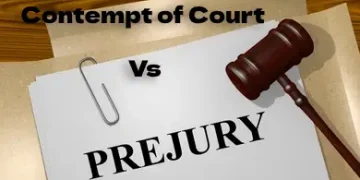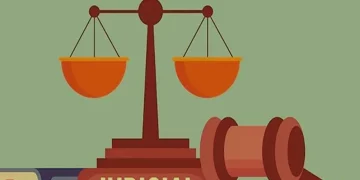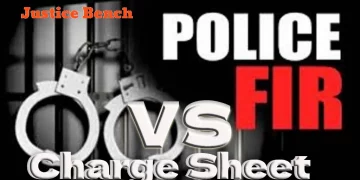The term “rescission” originates from the Latin word ‘rescindere’, meaning to cut or tear open. It refers to the act of tearing open a contract in such a way that the parties involved are returned to their original pre-contractual positions. Essentially, it is as if no contract ever existed between them. There are certain circumstances, such as misrepresentation or fraud, that may lead to the rescission of a contract. However, there are also situations where courts do not allow the contract to be rescinded. In this article, we will provide a detailed explanation of the concept of contract rescission, explore the typical circumstances in which rescission is granted or denied by the courts, and examine relevant case laws related to contract rescission.
What is the definition of contract rescission?
Rescinding a contract involves the act of declaring it as no longer legally binding on the parties involved. It essentially means that one party seeks to nullify the contract, thereby relieving themselves of the obligations outlined within it. Rescission of a contract is also referred to as unwinding an agreement. It can be broadly described in two ways:
Firstly, rescinding a contract can be initiated by a party expressing their intention to void the contract. Once the contract is rescinded, the party that initiated the rescission is no longer obligated to fulfill their contractual duties. However, they may still be liable to compensate the other party for any losses incurred, depending on the relevant clauses in the contract. After rescission, both parties revert to the pre-contract stage, as if the contract was never signed or entered into. Rescission can occur through legal means, mutual agreement, or due to reasonable cause.
Secondly, a court of law may also rescind a contract in the interest of fairness and justice, especially when the performance of the contract could be detrimental to the welfare of society or the public at large. In such cases, the court ensures that the parties involved are restored to a position as if the contract had never been signed or entered into. Simultaneously, the rights of any third parties affected by the rescinded contract are protected.
Factors that may warrant the rescission of a contract
In order to rescind a contract, the court assesses the validity of the reasons put forth for undoing the contract. Mere change of mind by the parties involved does not warrant rescission, as the contract legally binds them. The following are grounds for rescinding a contract:
- Mutual Consent: If both parties agree and believe that performing the contract would cause significant and irreparable losses, they can jointly seek rescission.
- Indian Contract Act, 1872: Sections 19 and 19A of the Indian Contract Act, 1872 outline circumstances where rescission can be demanded. These include cases where the other party presented false information, made misrepresentations, exerted undue influence, or failed to disclose important facts, particularly in insurance contracts. Rescission can also be sought if the contract is unlawful for one party. Additionally, Sections 39, 53, 55, and 64 of the Indian Contract Act, 1872 provide further grounds for rescission.
- Contrary to Public Interest: If a contract is deemed to be against the general interests of society or the public at large, rescission may be appropriate.
- Specific Relief Act, 1963: Sections 27 to 30 of the Specific Relief Act, 1963 address the concept of contract rescission as a form of legal remedy. These sections deal with situations where rescission may be granted, such as cases involving the sale or lease of immovable property, specific performance, or alternative prayers for rescission in specific performance suits. Section 30 enables the court to order the rescinding party to take actions that restore equity.
Rescission of contracts may be denied in circumstances where:
It should be noted that rescinding a contract is not always considered fair and just. Additionally, the right to rescind a contract is not an automatic entitlement, but rather a discretionary power held by the court. The court may decline a request to rescind a contract based on the following circumstances:
- Substantial performance: If one of the parties has demonstrated a willingness to fulfill their obligations by performing their actions as required by the contract.
- Protection of third-party rights: If a third party has derived benefits or acquired rights from the contract, reversing the contract could result in harm or prejudice to their interests.
- Other defenses: There are additional defenses that can be used to resist the rescission of a contract. For example, “unclean hands” refers to one party alleging a breach of contract due to the other party engaging in wrongful conduct. Another defense is “laches,” which means that one party unduly delayed taking legal action, causing prejudice to the other party.
Legal cases regarding the rescission of contracts.
The topic of the rescission of contracts has been discussed and decided upon by several High Courts and the Supreme Court of India through various cases. Here are some case laws:
- Satya v. Teja Singh: In this case, the Supreme Court held that the right to rescind a contract arises only when there is a substantial breach of the terms of the contract. Mere inadequacy of consideration or a trivial breach does not warrant rescission.
- Alopi Parshad v. Union of India: The Supreme Court held that rescission is not available as a remedy when the party seeking rescission has accepted the benefits under the contract. In such cases, the party must restore or offer to restore the benefits received before seeking rescission.
- Abdul Majid v. Padma Bibi: The High Court observed that the power to rescind a contract must be exercised judiciously and in the interest of justice. Rescission should not be granted if it would result in injustice or unfairness to either party.
- N. Balakrishnan v. M. Krishnamurthy: The Supreme Court held that rescission of a contract can be granted if there is a material misrepresentation or fraud by one party inducing the other to enter into the contract. Rescission serves as a remedy to undo the effects of such deceitful conduct.
- Mahabir Prasad v. Durga Prasad: The High Court held that rescission cannot be granted based on a mere change of mind or dissatisfaction with the terms of the contract. There must be valid grounds, such as fraud, undue influence, or misrepresentation, to justify the rescission of a contract.
- Sri Pawan Kumar Dalmia v. Sri Biligowda (2021): In this particular case, the plaintiffs alleged that the defendants lacked proper ownership rights to the property and sought to rescind the contract, while also seeking the return of the earnest money. Initially, the plaintiffs were unsuccessful in their claim during the trial. However, upon appeal, the Karnataka High Court ruled in favor of the plaintiffs, recognizing their right to rescind the contract due to the defendants’ misrepresentation regarding their ownership rights. The court further ordered the defendants to refund the earnest money to the plaintiffs, who were the appellants in this case.
- Bhupinder Kumar v. Angrej Singh (2009): In this particular case, the appellant (buyer) entered into an agreement to purchase land from the respondent (seller). However, the respondent failed to execute and register the sale deed as agreed. Subsequently, the appellant filed a suit for specific performance, and the court ruled in favor of the appellant, decreeing the suit. However, the appellant failed to deposit the remaining sale price within the specified timeframe, leading the respondent to file an application for rescission of the contract. The executing court accepted the application and rescinded the contract, a decision that was upheld by the High Court. The court referred to Section 28 of the Specific Relief Act, which permits the rescission of a contract for the sale of immovable property if the purchaser fails to pay the purchase money within the specified time. It was noted that the trial court retains its authority even after the decree for specific performance and can grant an extension of time for compliance. After evaluating the facts of the case, the court determined that the appellant had not provided sufficient evidence to warrant an extension of time, and there was no indication of the appellant’s inability to tender or deposit the remaining sale consideration. As a result, the executing court’s decision to deny an extension of time and rescind the contract was deemed fair and just by the High Court. The Supreme Court upheld the decision of the High Court.
Conclusion
Therefore, it can be stated that rescission results in the nullification of a contract, effectively wiping out all its consequences. Any exchanges made between the parties, such as money or goods, must be returned in a fair manner. It serves as a legal recourse when either or both parties desire to reverse the effects of the contract and revert to their positions before entering into the contract.

















